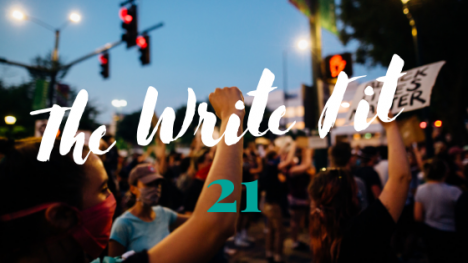
In 1996, I took a job in Johannesburg, South Africa.
It was two years after apartheid ended and Nelson Mandela was president of the country. My job was to help establish a corporate office, which included hiring local staff while ensuring the demographics of the office matched those of the country and ensuring economic equality across all paygrades.
After decades of discriminatory policies in South Africa, it wasn’t easy finding skilled black professionals who could sell multimillion dollar software products and deliver technical support to large corporate institutions. I went into the job determined to make a difference. It took about two weeks to realise the real challenge was not to make things worse.
Let me explain. I was confident what my company was offering was exactly what the country needed – well-paid jobs, training, benefits, and job security with a multinational company. I had led global teams before and knew we could support people who needed to overcome gaps in experience and education.
It was an optimistic time in South Africa, and I was excited to be part of a positive change. I was also naïve.
What I hadn’t counted on – or even considered before I took the job – was the vast majority of the population was suffering from a collective PTSD. Unimaginably harrowing apartheid-era human rights abuses were documented by the Truth and Reconciliation Commission and those hearings were televised. As the iron grip of apartheid vanished, rage and retaliation set in, so people who had never been impacted by crime were now regular targets.
Hefty remuneration packages were attractive but making a sales quota was the least challenging priority for most of the people on my team. It quickly become apparent that motivating people with a good old USA pep talk was going to be about as effective as a male obstetrician telling an expectant mother about labor pain.
What does this have to do with writing or marketing in 2020? Just about everything, if you ask me. What we’re experiencing with the Black Lives Matter protests is the result of centuries of racial discrimination.
Social media has become a grassroots truth and reconciliation commission. The world is waking up to the full horror of systemic racism and getting a glimpse, however small, of what black people endure regardless of where they live, how much education they have, or what professional qualifications they’ve earned.
At the same time, we’re seeing counter-protests from a vocal opposition and a USA president who’s fueling that rage.
This is not the time for marketers to show their naivety, even though their intentions are good. I had a huge learning curve to even begin to understand the experience of surviving apartheid. No one wanted or needed my opinion. They certainly didn’t want platitudes. Empathy didn’t hurt but it didn’t help much, either. By comparison, any hardship I experienced was pretty damned benign.
I’m seeing a lot of terrible behaviour from marketers who are treating the Black Lives Matter protests as an opportunity. My recommendations are simple.
I lived in the lap of luxury in South Africa for three years; it wasn’t a hardship. Working alongside people who suffered and sacrificed just to survive changed my entire outlook on, well, everything. Providing good jobs was a first, tiny step in the right direction. It took years of showing up every day and being committed to their success – on their terms – before they began to trust I had their best interests at heart.
As we enter the third week of protests against racism and police violence, grapple with a global pandemic and stare down a recession that’s promising to be like nothing we’ve seen before, it’s a good time for us to reconsider whether our marketing is contributing anything positive to the mix. Are you laying the groundwork for a permanent shift in how your business approaches equality?
The world is hurting; let’s not add to it.
Sarah Mitchell
17 June 2019
